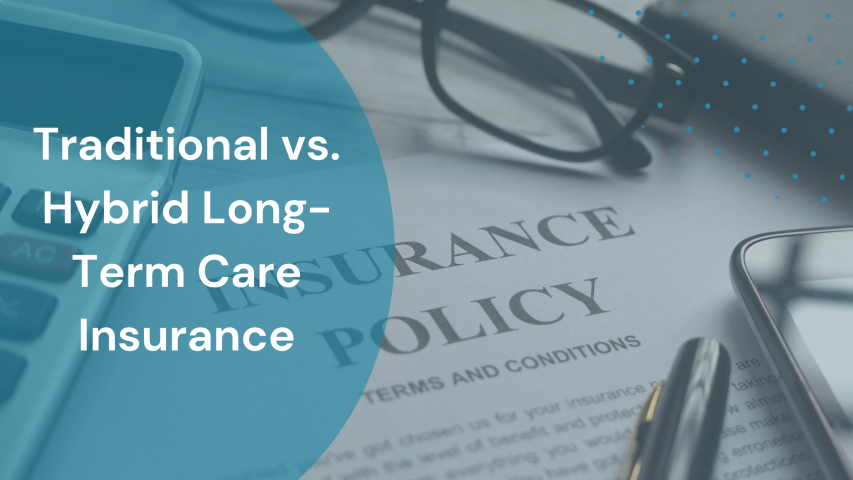Traditional vs. Hybrid Long-Term Care Insurance: Which is Appropriate for You?

High Net-Worth Individuals: Are You Missing Opportunities in Your Financial Planning?
September 28, 2023
The Grinch vs. Santa Claus – Who is the better investor?
December 13, 2023Growing old is simply one thing you can’t avoid. The goal is to enjoy your retirement years as you imagined after a lifetime of working. One aspect of growing old that young people may overlook is long-term care insurance and how expensive it can be if you need it and don’t plan for it. According to Money.com, long-term care expenses can run upwards of $9,000 per month. When you are young, the prospect of declining health 30+ years down the road isn’t at the forefront of your mind. However, it can’t be overstated how critical it is to be prepared for the possibility that you may need care later in life.
For those that see a benefit to investing in a long-term care insurance policy, one question you may have is which type of policy to choose – hybrid or traditional?
What is long-term care insurance?
Long-term care insurance is typically used for expenses that Social Security generally doesn’t cover; for example, home health care, assisted living facilities, and nursing homes. Social Security provides retirement, disability, and survivor benefits instead of long-term care costs.
What is the difference between traditional and hybrid long-term care insurance?
- Traditional long-term care insurance (use it or lose it) – Traditional long-term care is a stand-alone policy where you pay regular premiums over time. Should you need long-term care, the policy will pay for covered services up to a limit. If you don’t ever need care, the money you paid toward the premiums, much like homeowner’s insurance, are not returned to you or your heirs.
- Hybrid long-term care insurance – Hybrid long-term care is what sounds like, a combination of long-term care insurance with life insurance. This type of insurance provides added financial security; if you need care, the policy can help cover those expenses. If you never need care, the policy offers a death benefit to your heirs.
How do the costs compare?
- Traditional long-term care premiums are generally lower initially but tend to increase over time because of rate increases.
- Hybrid policies typically have a fixed premium but tend to be higher upfront.
Which policy is more flexible?
- Hybrid long-term care insurance is typically more flexible because the policies offer a “return-of-premium” feature that permits you to cancel the policy and recover a portion or all of your premiums paid should your long-term needs change.
Are there specific cons I should be aware of?
- As in anything, you have the pros and cons. As mentioned earlier, traditional long-term care insurance is to “use it or lose it,” whereas hybrid will generally be distributed to your heirs if it isn’t used.
- The cost of hybrid long-term care has a higher price than traditional long-term care. Also, it may not offer as significant long-term care coverage as a stand-alone traditional policy.
How do I know which one would work for me?
- Consider consulting a financial professional to review your financial situation, help you design a strategy, and determine which type of long-term care could benefit you and your financial goals.
Important Disclosures:
This material contains only general descriptions and is not a solicitation to sell any Long Term Care insurance product, nor is it intended as any financial advice. For information about specific insurance needs or situations, contact your insurance agent. This article is intended to assist in educating you about insurance generally and not to provide personal service. They may not take into account your personal characteristics such as budget, assets, risk tolerance, family situation or activities which may affect the type of insurance that would be right for you. In addition, state insurance laws and insurance underwriting rules may affect available coverage and its costs. Guarantees are based on the claims paying ability of the issuing company. If you need more information or would like personal advice you should consult an insurance professional. You may also visit your state’s insurance department for more information.
All information is believed to be from reliable sources; however, LPL Financial makes no representation as to its completeness or accuracy.
This article was prepared by LPL Marketing Solutions
Sources:
Traditional vs. Hybrid Long-Term Care Insurance: Pros and Cons (2023) (annuityexpertadvice.com)
Is Hybrid Life and Long-Term Insurance Worth Buying? | Money
LPL Tracking # 1-05376456





